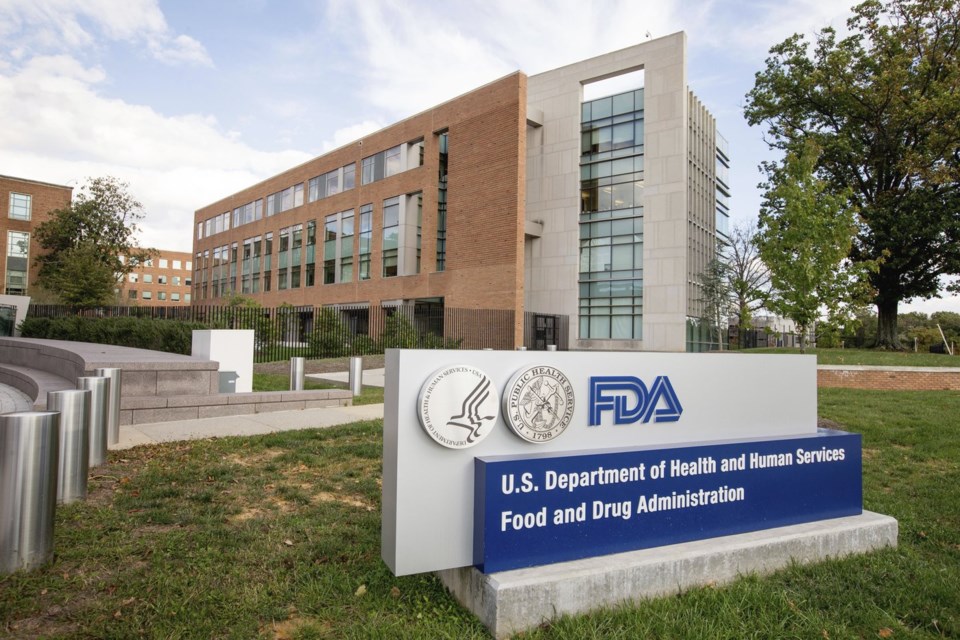WASHINGTON (AP) — The Trump administration said Tuesday it will limit approval for seasonal COVID-19 shots to seniors and others at high risk pending more data on everyone else — raising questions about whether some people who want a vaccine this fall will be able to get one.
Top officials for the Food and Drug Administration laid out new standards for updated COVID shots, saying they'd continue to use a streamlined approach to make them available to adults 65 and older as well as children and younger adults with at least one high-risk health problem.
But the FDA framework, published Tuesday in the New England Journal of Medicine, urges companies to conduct large, lengthy studies before tweaked vaccines can be approved for healthier people. It's a stark break from the previous federal policy recommending an annual COVID shot for all Americans six months and older. In the paper and a subsequent online webcast, the FDA's top vaccine official said more than 100 million Americans still should qualify for what he termed a booster under the new guidance.
Dr. Vinay Prasad described the new approach as a “reasonable compromise” that will allow vaccinations in high-risk groups to continue while generating new data about whether they still benefit healthier people.
"For many Americans we simply do not know the answer as to whether or not they should be getting the seventh or eighth or ninth or tenth COVID-19 booster,” said Prasad, who joined the FDA earlier this month. He previously spent more than a decade in academia, frequently criticizing the FDA's handling of drug and vaccine approvals.
It's unclear what the upcoming changes mean for people who may still want a fall COVID-19 shot but don't clearly fit into one of the categories.
“Is the pharmacist going to determine if you're in a high-risk group?” asked Dr. Paul Offit, a vaccine expert at Children's Hospital of Philadelphia. “The only thing that can come of this will make vaccines less insurable and less available.”
The nation's leading pediatrics group said FDA's approach will limit options for parents and their children.
“If the vaccine were no longer available or covered by insurance, it will take the choice away from families who wish to protect their children from COVID-19, especially among families already facing barriers to care,” said Dr. Sean O'Leary of the American Academy of Pediatrics.
Provisional data from the Centers for Disease Control and Prevention shows more than 47,000 Americans died from COVID-related causes last year. The virus was the underlying cause for two-thirds of those and it was a contributing factor for the rest. Among them were 231 children whose deaths were deemed COVID-related, 134 of them where the virus was the direct cause -- numbers similar to yearly pediatric deaths from the flu.
The new FDA approach is the culmination of a series of recent steps under Health Secretary Robert F. Kennedy Jr. scrutinizing the use of COVID shots and raising questions about the broader availability of vaccines. It was released two days ahead of the first meeting of FDA’s outside vaccine experts under the Trump.
Last week the FDA granted full approval of Novavax's COVID-19 vaccine but with major restrictions on who can get it — and Tuesday's guidance mirrors those restrictions. The approval came after Trump appointees overruled FDA scientists' earlier plans to approve the shot without restrictions.
Pfizer and Moderna, makers of the most commonly used COVID shots, each said they would continue to work with the agency.
For years, federal health officials have told most Americans to expect annual updates to COVID-19 vaccines, similar to the annual flu shot. Just like with flu vaccines, until now the FDA has approved updated COVID shots so long as they show as much immune protection as the previous year's version.
But FDA's new guidance appears to be the end of that approach, according to Prasad and FDA Commissioner Marty Makary, who co-authored the journal paper and joined the FDA webcast.
Prasad and Makary criticized the U.S.’s “one-size-fits-all,” contrasting it with some European countries that recommend boosters based on age, risk and other factors.
Prasad said the FDA will ask all manufacturers to do new clinical trials in healthy people ages 50 to 64, randomly assigning them to get a vaccine or a placebo and tracking outcomes with special attention to severe disease, hospitalization or death. Companies might need to repeat that requirement for future vaccine approvals if there's a large virus mutation rather than the past year's incremental evolution. Companies are also free to test their vaccines for approval in younger adults and children, Prasad said, adding “this is a free country.”
Since becoming the nation's top health official in February, Kennedy has filled the FDA and other health agencies with outspoken critics of the government’s handling of COVID shots, including Makary and Prasad. Under federal procedures, the FDA releases new guidance in draft form and allows the public to comment before finalizing its plans. The publication of Tuesday's policy in a medical journal is highly unusual and could run afoul of federal procedures, according to FDA experts.
Health experts say there are legitimate questions about how much everyone still benefits from yearly COVID vaccination or whether they should be recommended only for people at increased risk.
In June, an influential panel of advisers to the CDC is set to debate which vaccines should be recommended to which groups.
The FDA's announcement appears to usurp that advisory panel's job, Offit said. He added that CDC studies have made clear that booster doses do offer protection against mild to moderate illness for four to six months after the shot even in healthy people.
___
The Associated Press Health and Science Department receives support from the Howard Hughes Medical Institute’s Science and Educational Media Group and the Robert Wood Johnson Foundation. The AP is solely responsible for all content.
Matthew Perrone And Lauran Neergaard, The Associated Press



